An old-fashioned hand tool that was easy to operate and widely used in the past
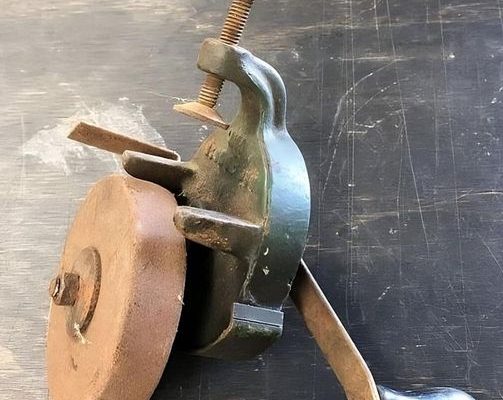
The vintage hand crank grinder is an iconic tool that harkens back to a time when manual craftsmanship and resourcefulness were key in everyday life. This timeless piece of equipment has a rich history and has found a special place in kitchens, workshops, and the hearts of collectors. In this article, we’ll explore the history, practical uses, and lasting impact of the hand crank grinder, as well as why it continues to hold value even in today’s world of modern appliances.
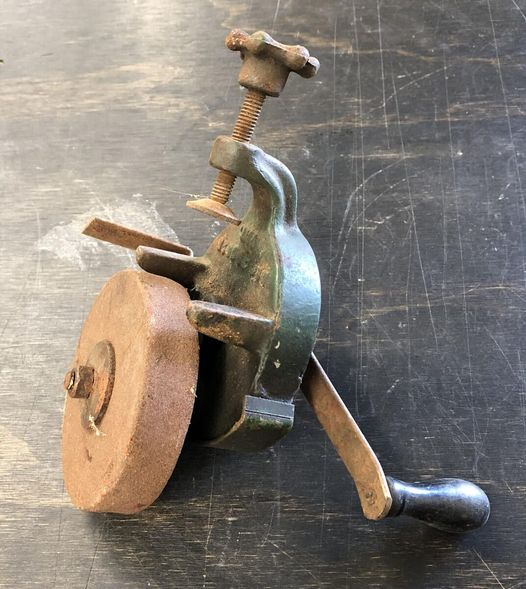
The History of the Hand Crank Grinder
The hand crank grinder first emerged in the late 19th and early 20th centuries, coinciding with the rise of industrialization. As machinery advanced and mass production of household tools became common, the hand crank grinder was introduced as a reliable and effective tool. Designed to manually grind various materials like coffee beans, grains, and spices, these grinders were made from sturdy materials like cast iron, wood, and steel, reflecting the craftsmanship of the era.
At a time when electricity was not yet widely accessible, particularly in rural areas, these manual grinders were prized for their independence from power sources. They were simple yet efficient, requiring nothing more than physical effort to operate. Their mechanical simplicity was a marvel in itself, and they quickly became a household and workshop essential.
Uses of the Vintage Hand Crank Grinder
1. Grinding Coffee Beans and Spices
One of the most common uses for the vintage hand crank grinder was in the kitchen, particularly for grinding coffee beans. During an era when pre-ground coffee was rare, grinding fresh beans at home became part of the daily routine. The hand crank grinder provided coffee enthusiasts with a consistent grind, crucial for brewing flavorful cups of coffee.
In addition to coffee beans, these grinders were used to grind spices, grains, and even herbs. The ability to grind spices fresh at home was particularly valuable, as it allowed for stronger flavors and enhanced culinary experiences.
2. Tool Sharpening in Workshops
Beyond the kitchen, hand crank grinders were also essential in workshops for sharpening tools and grinding metal. Carpenters, blacksmiths, and metalworkers relied on the precision these grinders provided to maintain their tools. Whether it was sharpening blades, chisels, or other metal implements, the manual control allowed craftsmen to achieve the desired sharpness and precision.
Why Hand Crank Grinders Were So Effective
The design of the hand crank grinder made it highly effective for a variety of tasks. The crank mechanism offered a level of control over the speed and intensity of the grind, which was ideal for tasks requiring precision. In contrast to electric grinders, the manual aspect gave users the ability to adjust their effort and maintain complete control over the grinding process.
Moreover, because the grinder was hand-powered, it could be used anywhere, making it perfect for homes and workshops without electricity. Its portability and reliability added to its value, as it became an indispensable tool for both households and professionals alike.
The Enduring Legacy of the Hand Crank Grinder
1. A Symbol of Craftsmanship
The vintage hand crank grinder is more than just a functional tool; it’s a symbol of the craftsmanship and self-sufficiency that defined a bygone era. These tools were built to last, with high-quality materials and a simple, effective design that required minimal maintenance. Many hand crank grinders from decades ago are still in excellent working condition today, a testament to their durability.
Collectors and enthusiasts treasure these grinders for their historical significance and craftsmanship. Restored and polished, they often serve as decorative pieces in modern homes or functional items in rustic kitchens and vintage-inspired workshops. The nostalgia and authenticity associated with using a hand crank grinder are deeply valued by those who appreciate traditional tools.
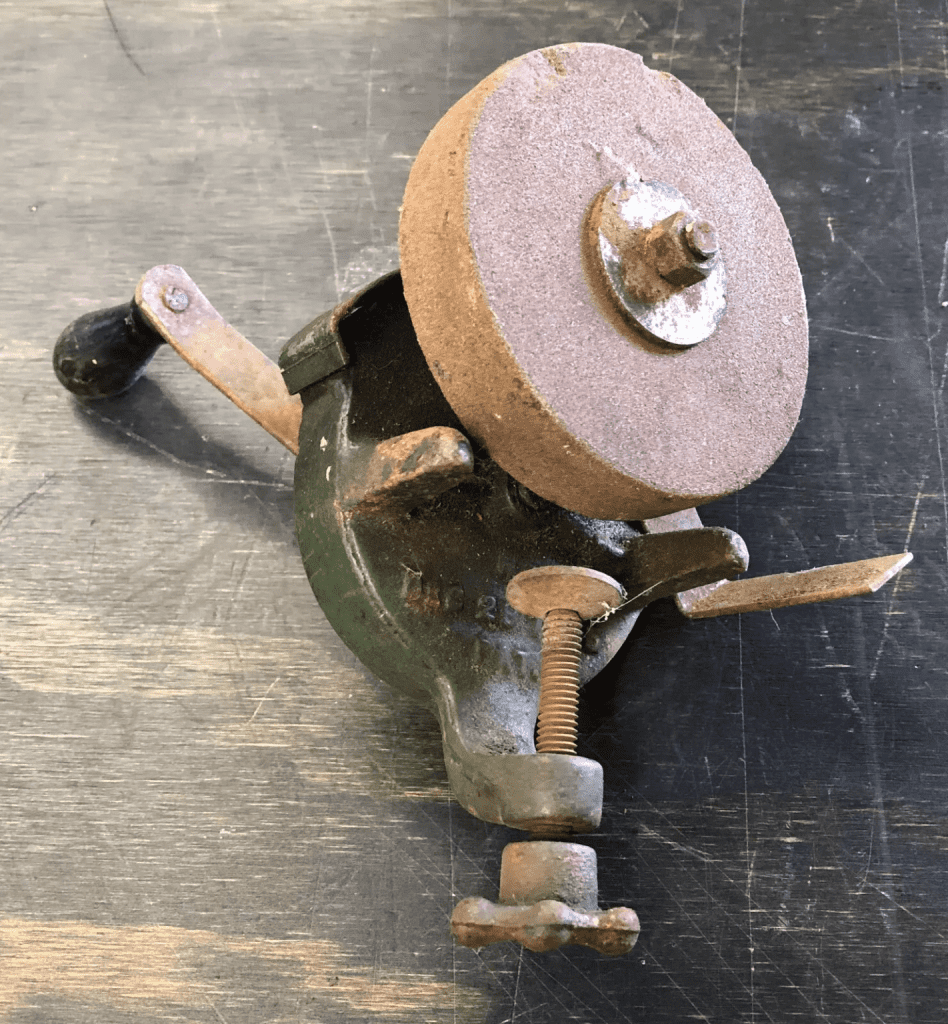
2. Influence on Modern Tools
Though we now live in an age dominated by electric grinders and processors, the influence of vintage hand crank grinders is still apparent in modern designs. The efficiency, simplicity, and control provided by hand crank grinders have been incorporated into contemporary tools, especially for those who still prefer manual methods. Many food processors, coffee grinders, and even woodworking tools echo the design principles of their vintage predecessors, albeit with electric power and modern materials.
Even in the world of gourmet coffee, manual grinders have made a comeback. Coffee aficionados often prefer hand crank grinders for their ability to produce a more consistent grind, as well as for the satisfaction that comes with crafting something by hand. The artisanal approach to coffee and food preparation, in general, has revived interest in these vintage tools, further solidifying their legacy.
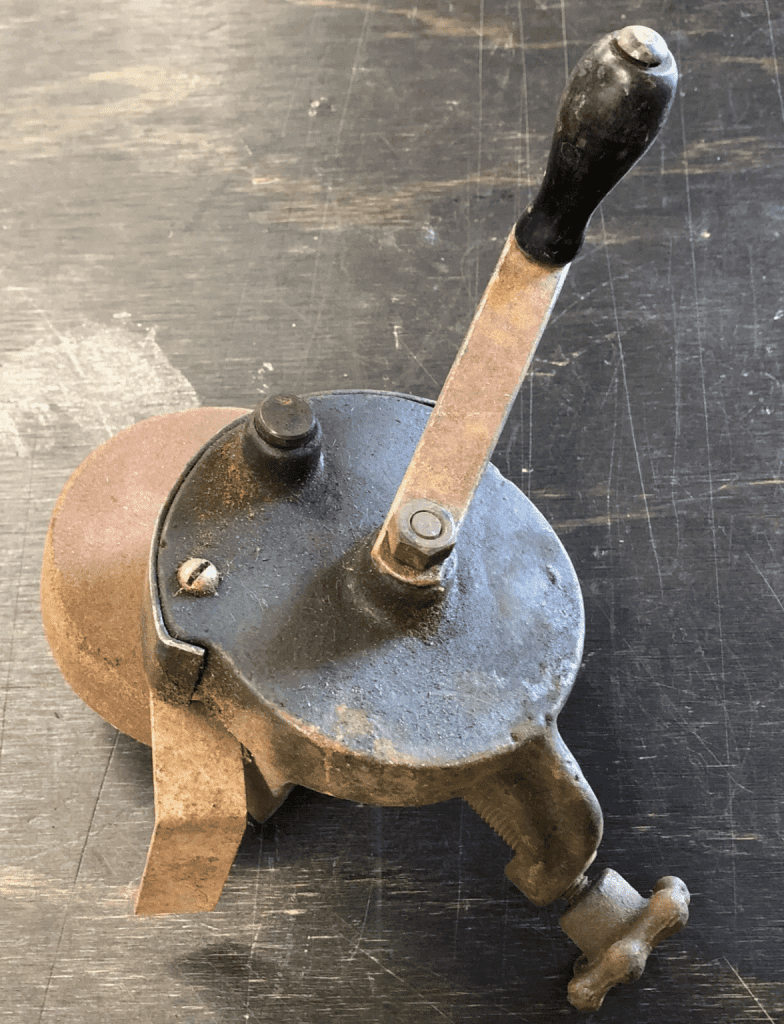
Collecting and Restoring Vintage Hand Crank Grinders
For collectors, finding and restoring a vintage hand crank grinder can be a rewarding experience. These grinders are highly sought after in the antique and vintage market, particularly those made from cast iron and brass. The craftsmanship and aesthetic appeal of these tools often make them valuable not just as functional items but as beautiful pieces of history.
Restoring a hand crank grinder typically involves cleaning the metal parts, polishing the wooden handles, and ensuring that the grinding mechanism works smoothly. Many enthusiasts enjoy the process of bringing these tools back to life, preserving a piece of history that might otherwise be forgotten.
Preserving the Art of Manual Craftsmanship
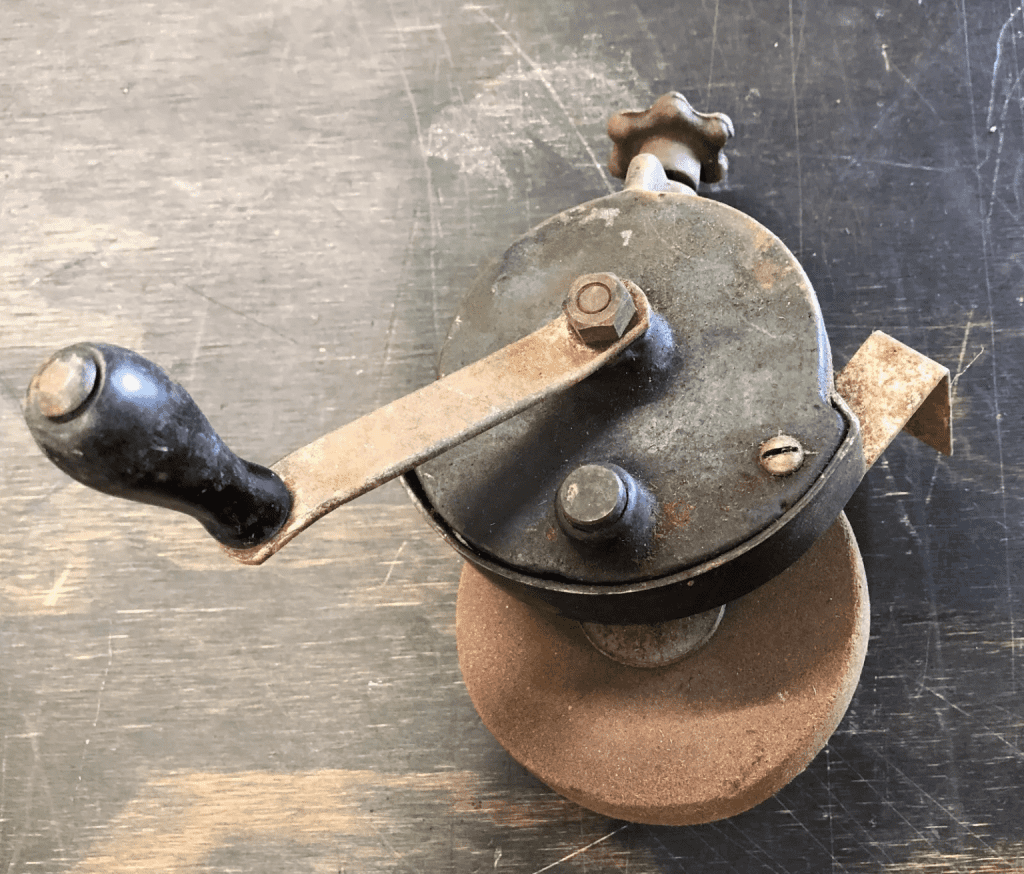
In an age where automation and convenience dominate, the vintage hand crank grinder stands as a reminder of the importance of manual craftsmanship. Using a tool that requires effort and precision connects us to the traditions of the past, where quality and self-reliance were paramount.
The resurgence of interest in manual methods, from grinding coffee beans to sharpening tools by hand, demonstrates that despite technological advancements, there is still value in doing things the old-fashioned way.
Conclusion
The vintage hand crank grinder is much more than just an old tool—it is a symbol of quality, durability, and craftsmanship from a time when manual effort and attention to detail were highly valued. Its history, practical applications, and lasting legacy have made it a beloved item for collectors, hobbyists, and anyone who appreciates the art of manual work.
Whether you admire it for its historical charm or its functional beauty, the hand crank grinder remains a remarkable example of how simple tools can stand the test of time. In a world filled with high-tech gadgets, the vintage hand crank grinder serves as a humble yet powerful reminder of the elegance of simplicity and the satisfaction of hands-on work.



